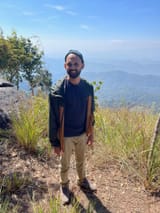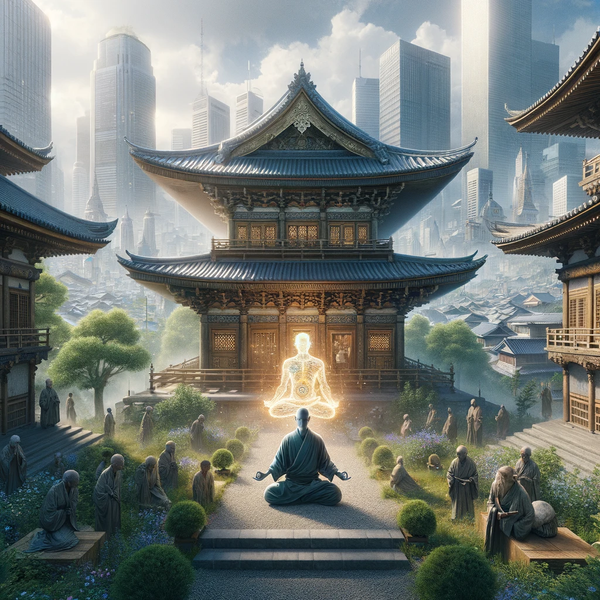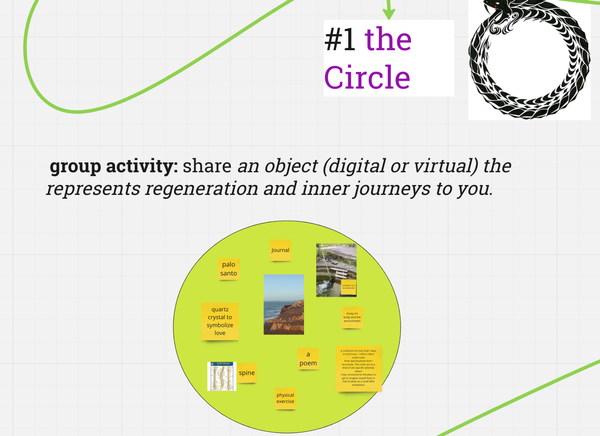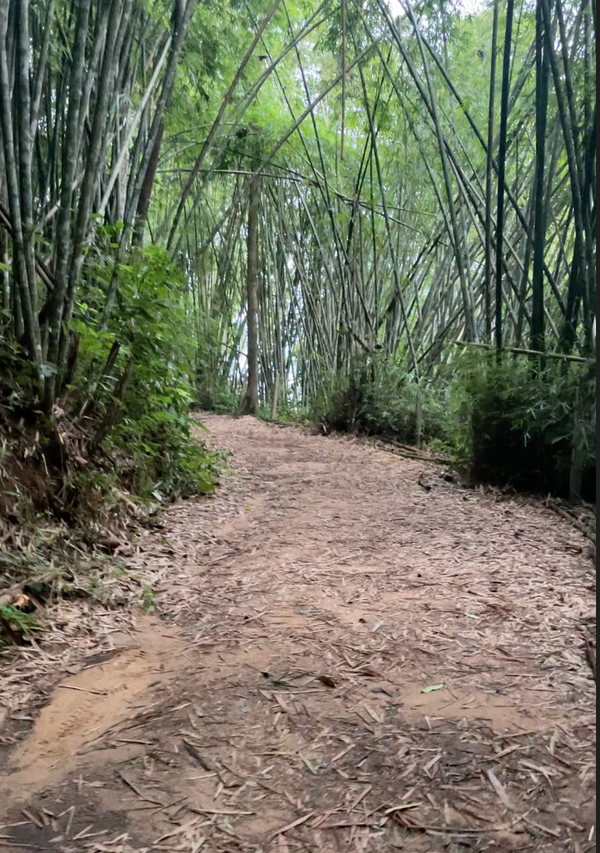Reflections from Pagoda: Culture,Web3, and Asia
In the mountains of Chiang Mai, 40+ Ethereum Ecosystem tech and community builders gathered to dream and build a fresh vision for ourselves and Asia.
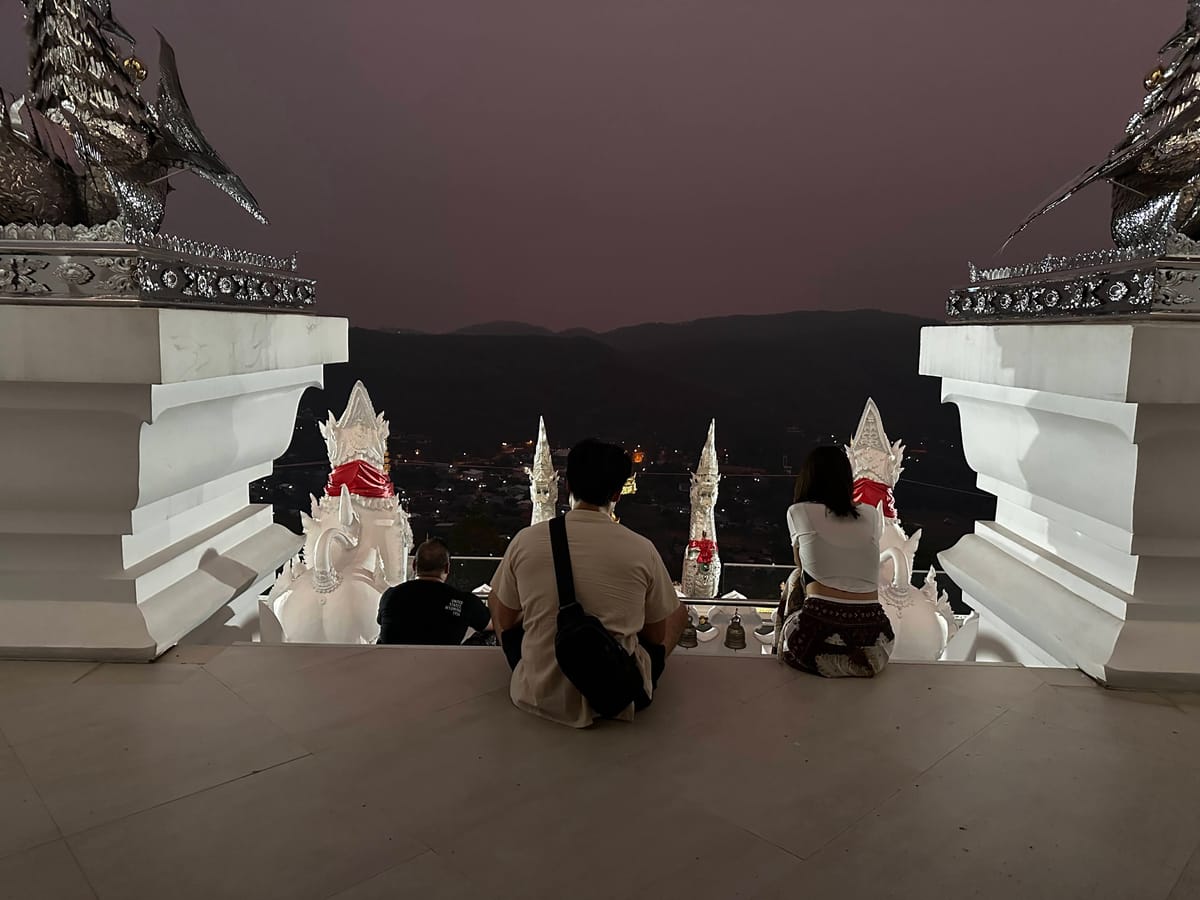
I'm writing this after surfacing from an 8-day co-living workshop with 40+ (mostly) Ethereum Ecosystem tech and community builders from across Southeast Asia, PRC, Taiwan, Japan, and South Korea.
In truth I'm struggling to describe what unfolded in a strictly descriptive or analytical sense. Yes, there were dozens of insightful presentations and discussions capturing the state of Web3/Crypto across the region. Yes, there were memes. Yes, there were philosophical discussions around how 'Asian values' can help guide Web3. Yes, we actually hacked together a prototype for a "Pagoda Net".
But beneath it all was a spontaneous meeting of energy, molding all of us together, allowing us to be vulnerable, share personal stories of trauma, suffering, and joy, and connect at a level beyond our personas. It was Play.
I saw it as an illustration that the most noble purpose of technology is to bring us together to experience living and self-discovery. Of course, if our tech is to fulfill this purpose it requires us to be able to truly connect at this level first, and guide it from this space.
For me, this is what the Pagoda gathering was about.
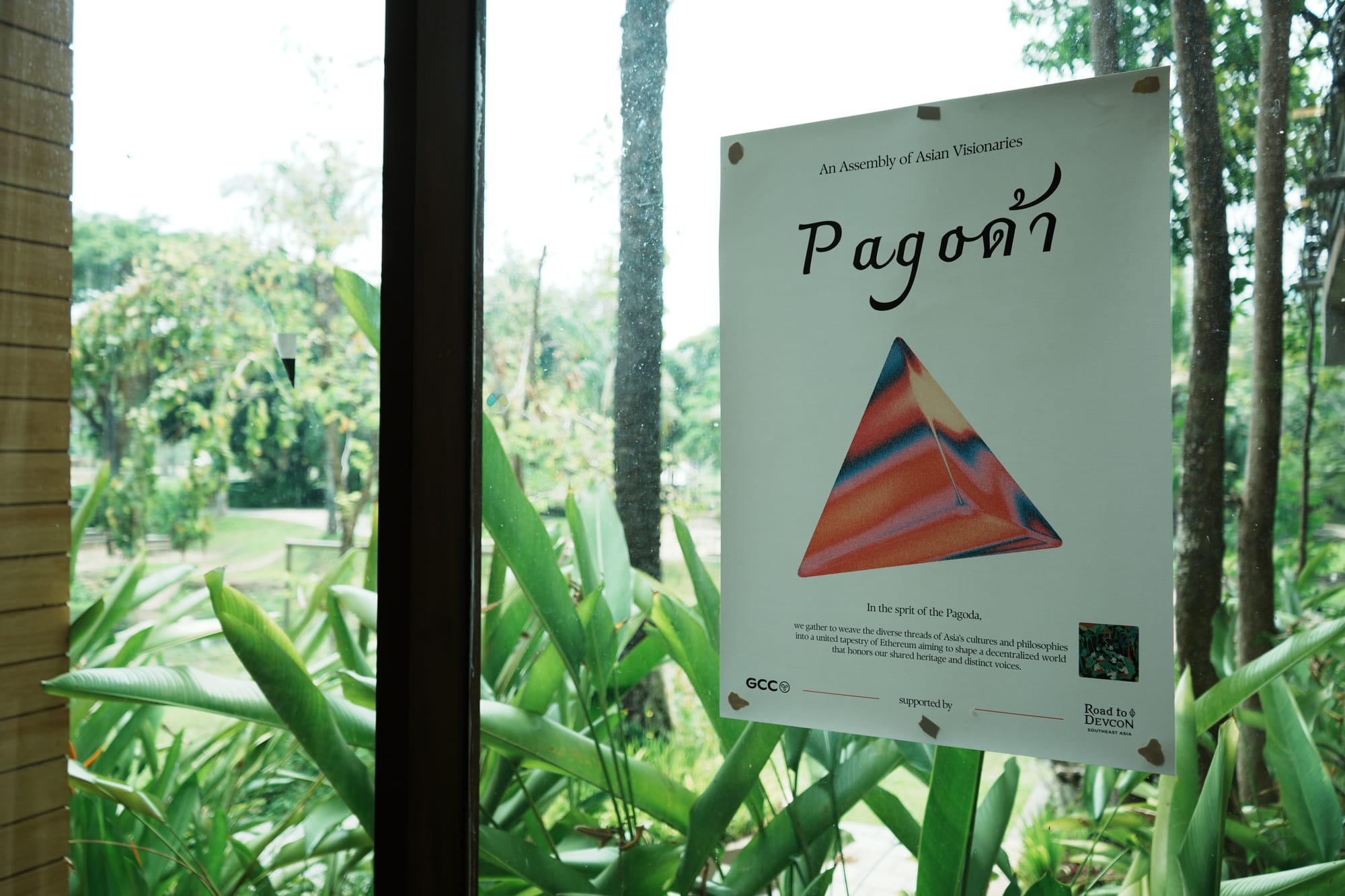
Web3 Culture and Regeneration
At Light Forest we're interested in regeneration. Starting from an exploration of what is it that makes us human and working our way up from there. These are not easy discussions to have. Not only does it involve an understanding of how our existing systems are hurting us and creating alternatives. But also a willingness to go on personal journeys of unlearning and healing as we wean away from old patterns of beliefs and ways of being.
In the Web3 space I find a tribe of very smart people that bring knowledge and skills to whip up technology and and economic systems and an interest in moving away from our current paradigm. With their heads they also bring their hearts. A willingness to unlearn and be vulnerable. This culture is what stands out about the space far more than the tech.
At Pagoda I encountered Chinese exploring what it means to drop their self-identification with the nation state. South Koreans seeing the link between the trauma of their country's war torn past and unbridled competition in society today. Taiwanese grappling with questions of identity and belonging within a family where each generation is shaped by the geopolitical conquest of their time. We cannot imagine an interconnection vision for Asia without acknowledging the individual and collective trauma that is sitting in our bodies and unconscious, driving our sense of purpose. The people at Pagoda may represent a tiny slice of the wider space but here we have something real to start with.
The competing flows of "Asia"
Ethereum Foundation's biannual Devcon conference will take place in Bangkok this November and is expected to pull in thousands of Web3 people from around the world to Thailand. The Pagoda gathering took place in this context– bring direction and coordination among Asian communities.
Talking about Asia is hard.
The diversity of languages, socio-economic levels, political systems, and geopolitical tensions makes it very difficult for regional initiatives around trade, infrastructure, or technology. Even if you just keep it to Southeast and East Asia, as we pragmatically chose to at Pagoda.
The lack of nuanced understanding or appreciation of Asia within the 'West' is a common bugbear within Asian academia and policy spaces–addressing this gap is something I've been doing with Digital Asia Hub for many years. Perhaps that judgement masks the reality that we in Asia don't really understand what it means to be Asian today...except that we eat 🍚.
For me, I grew up reading about the "Pan-Asian" visions of the early 20th century from figures such as Tagore and Liang Qichao, talking about an idea of Asia that goes beyond national borders and rooted in alternate values and philosophies to the western paradigm. Amitav Ghosh's Ibis trilogy which tells the tales of how the Opium trade, which linked British India to Qing Dynasty China, drove the flows that eventually led to modern Asia today. Going back nearly 2000 years when Buddhism started to spread from South Asia to China and East Asia it drove not just a religion but a circular flow of people, knowledge, and goods that drove economies, innovation, and culture. For instance, it is because of Buddhist monks that maps of India and China were first exchanged!
There is much in common that links spiritual philosophies of Buddhism, Daoism, and Advaita that once represented the idea of the East– which now stands for little more than a geographic region on a map. My own journey has has led me to a discovery of Asian values around intelligence, time, individuality, community, synchronicity with nature, health, death – all of which have helped me find a sense of inner balance that seemed impossible before.
The Pan Asia vision never happened. The closest it came was in a militarised form by Japan. Nationalist projects and capitalist logic took root. The underlying wisdom of the region come to be uprooted. The people of Asia continue to bear the costs. At our gathering we did not need to try hard to look for a reminder.
Sitting in an idyllic resort in the mountains outside Chiang Mai we had to keep ourselves sealed indoors with air purifiers and air conditioners because the air was literally toxic coupled with the hottest temperature every recorded in Thailand. During 'burning season' PM 2.5 levels in Chiang Mai ranks as one of the highest in the world. Year round most of the cities in the top 20 are in Asia.
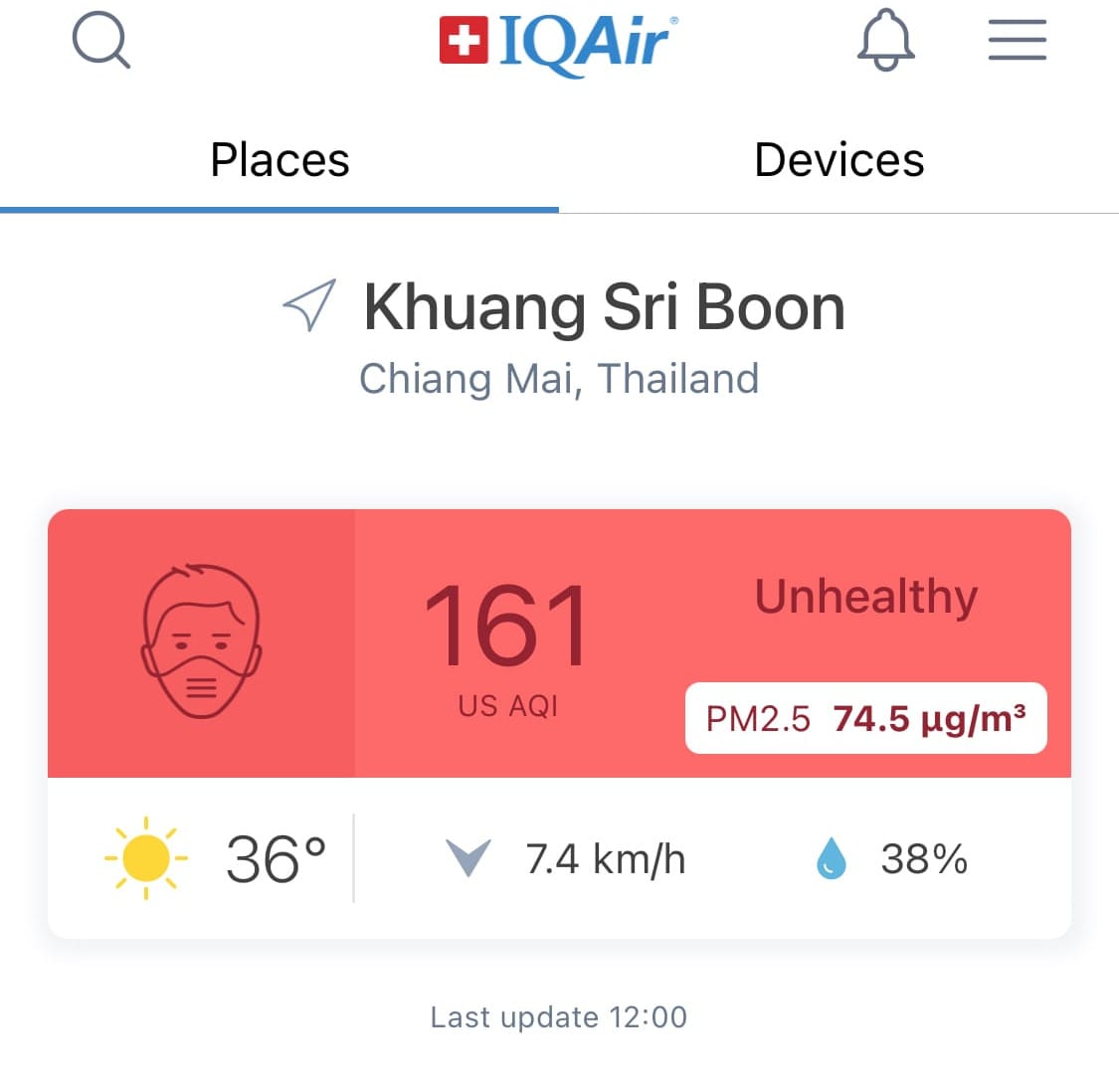
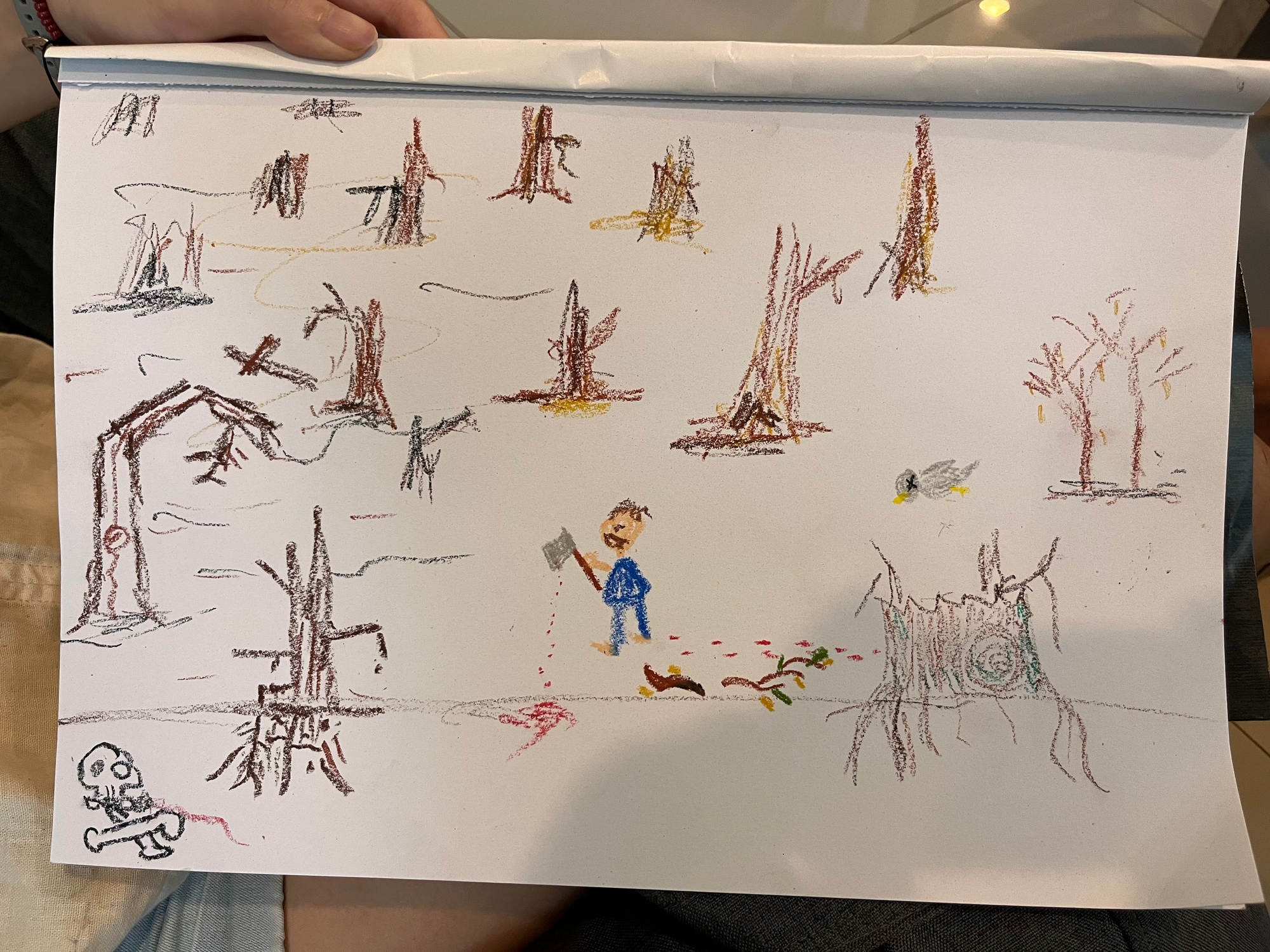
illustration by Vivian Chen
Today we can no longer finger point at Western colonial powers. The moment to accept responsibility and exercise our agency is now. Asia today has all the resources it needs unlike 70 years ago.
Perhaps what we lack the most right now is a vision and a story.
A Pagoda Vision
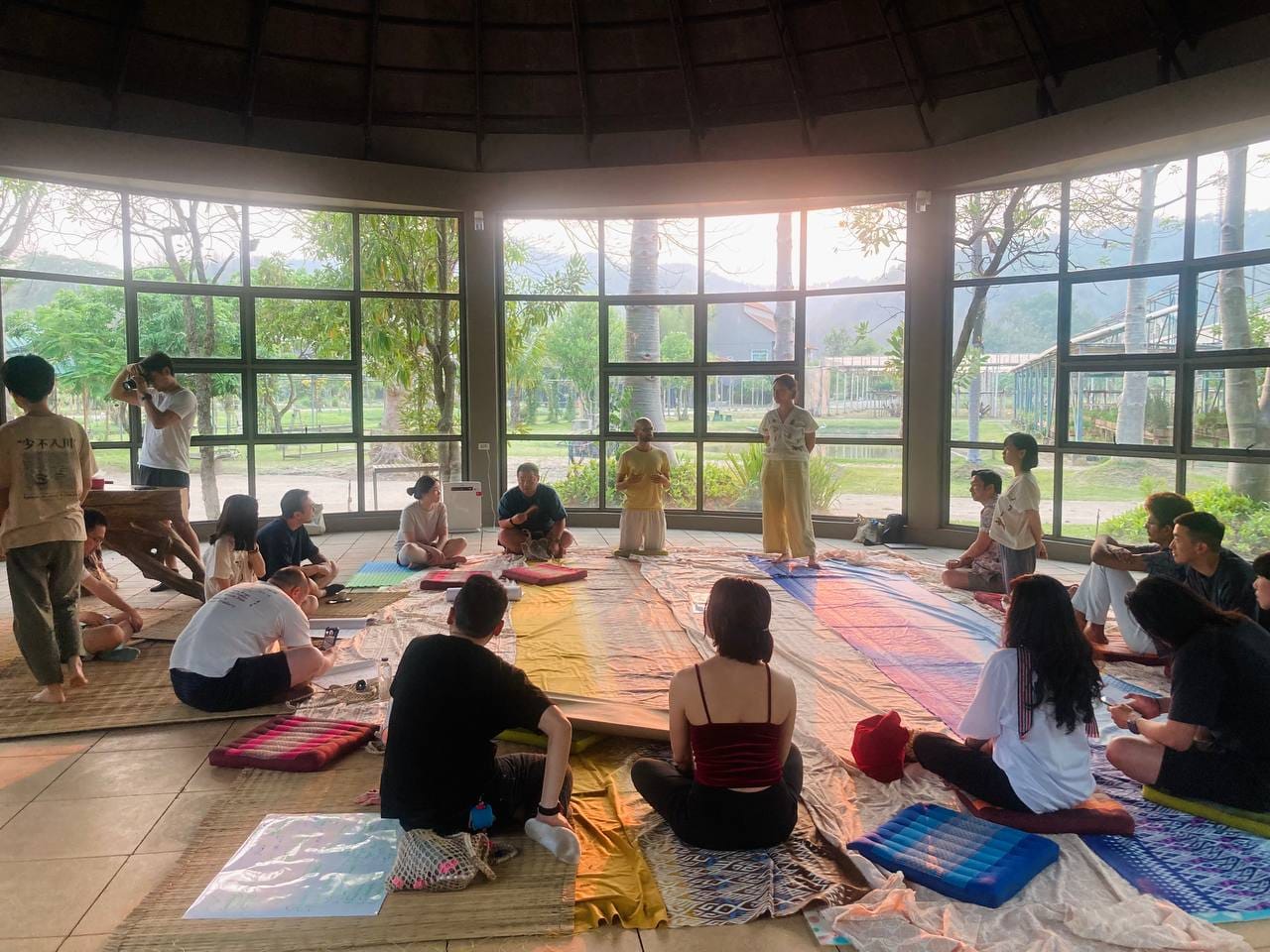

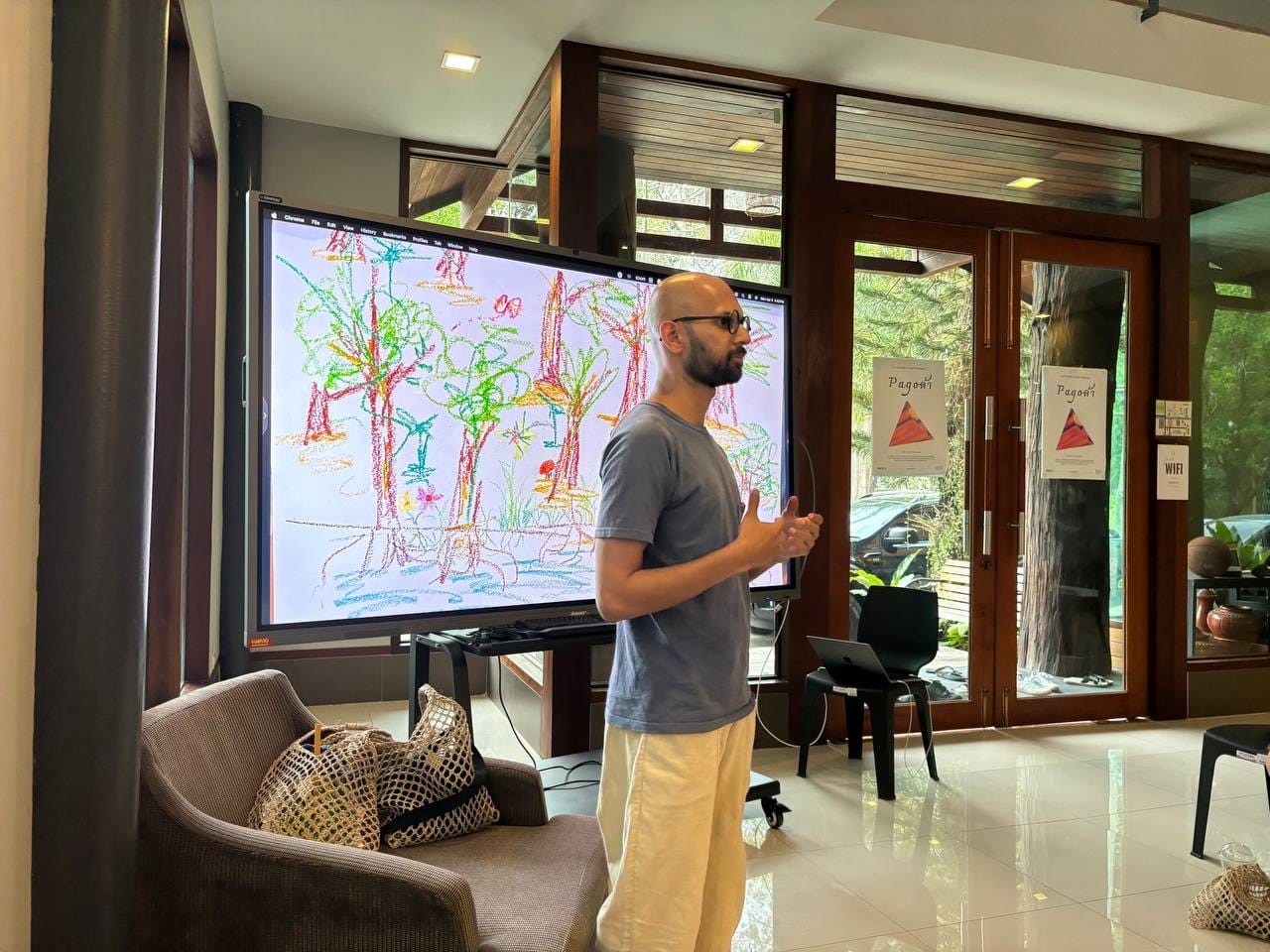
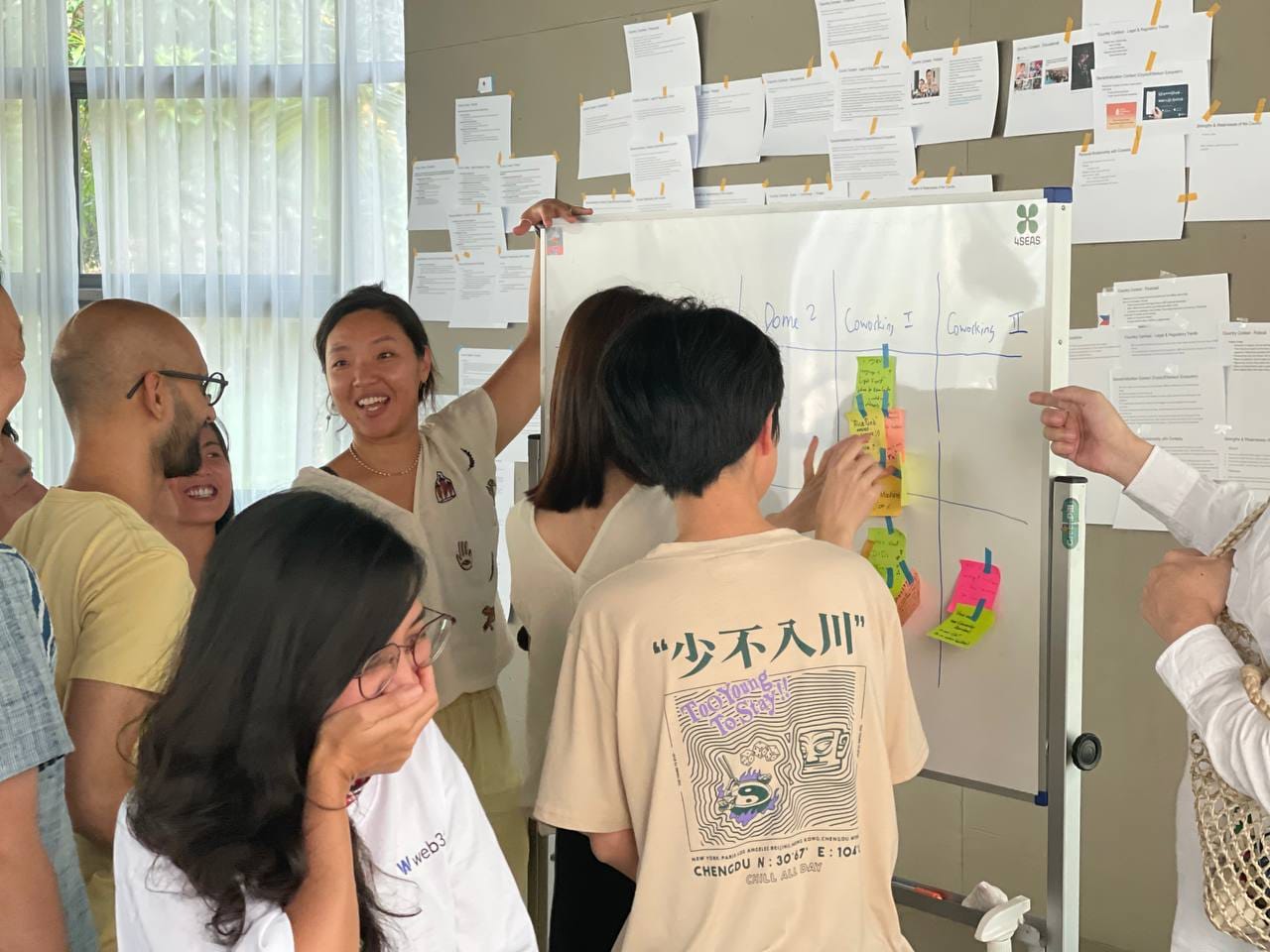
photo credit: Quinn, Jacky
At Pagoda we came together around the metaphor of Asia as a Forest, powered by an interconnected flow of people, culture, resources, and ideas. We collectively stood for ecological connection and oneness between humans and nature that underpins the philosophies and spirituality of this region. We devised systems of exchange for information modeled on circulatory flows in our bodies. We set the intention to drop the mindset of extraction and scarcity-based economic systems and explore how we might build systems that thrive on abundance and resilience.
As words on a screen these values exists as abstract concepts that we can feel in our bodies yet are difficult to articulate when designing, for example, a decentralised ID, one of the applications we are working on. Here we recognise that while we have a direction, we also need humility to unlearn the ways of being of the systems we seek to move away from. Through embodiment and practise of these values in our lives we may start to inform the exchange and technology layers we chose to build.
Crypto can come in to provide the tools and resources to realise this vision: through funding, expertise of developers and thinkers, and security and computability of decentralised networks and smart contracts. Pagoda's positioning may be a socio-technical layer bringing Web3 communities in the region together.
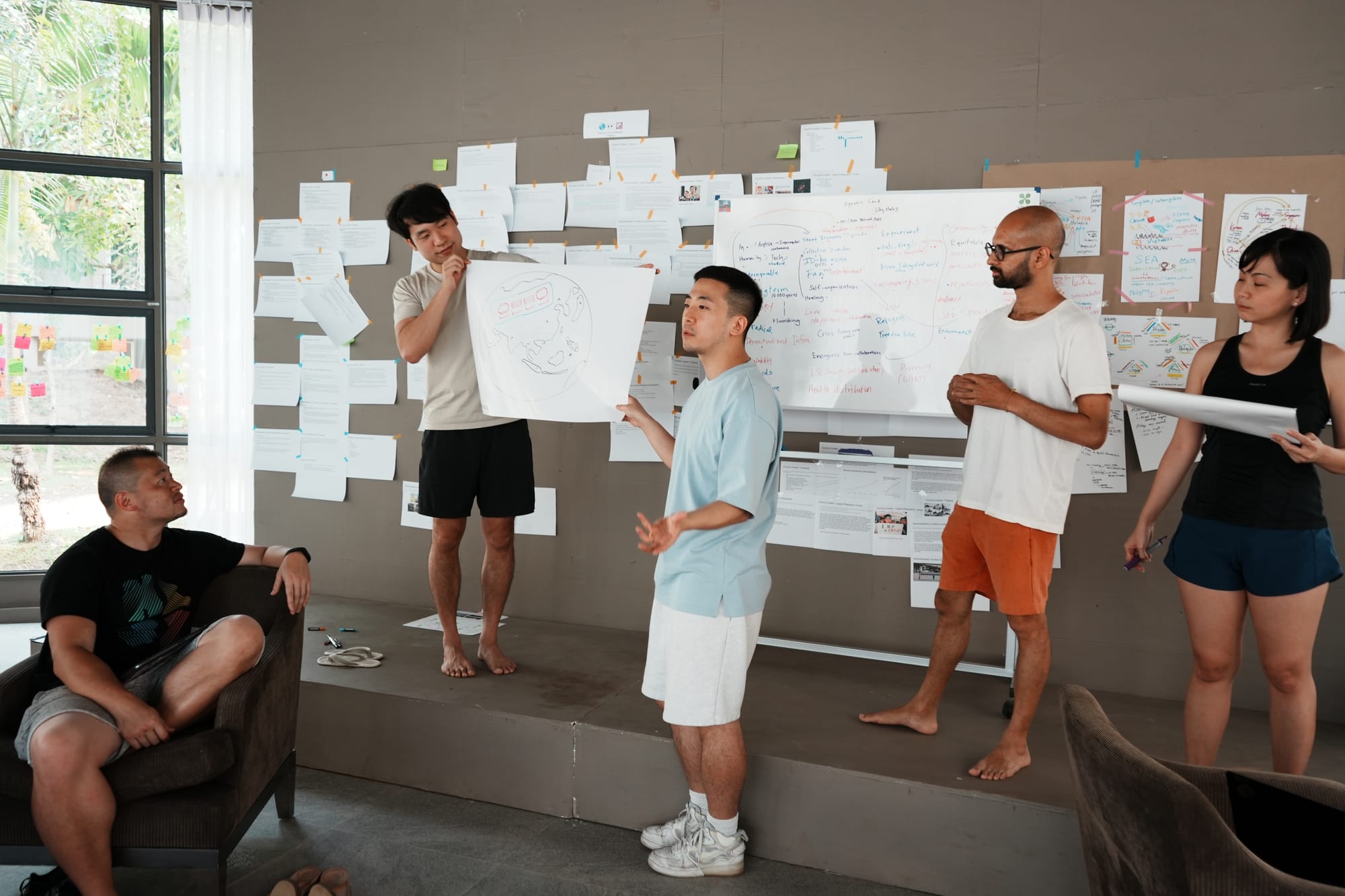
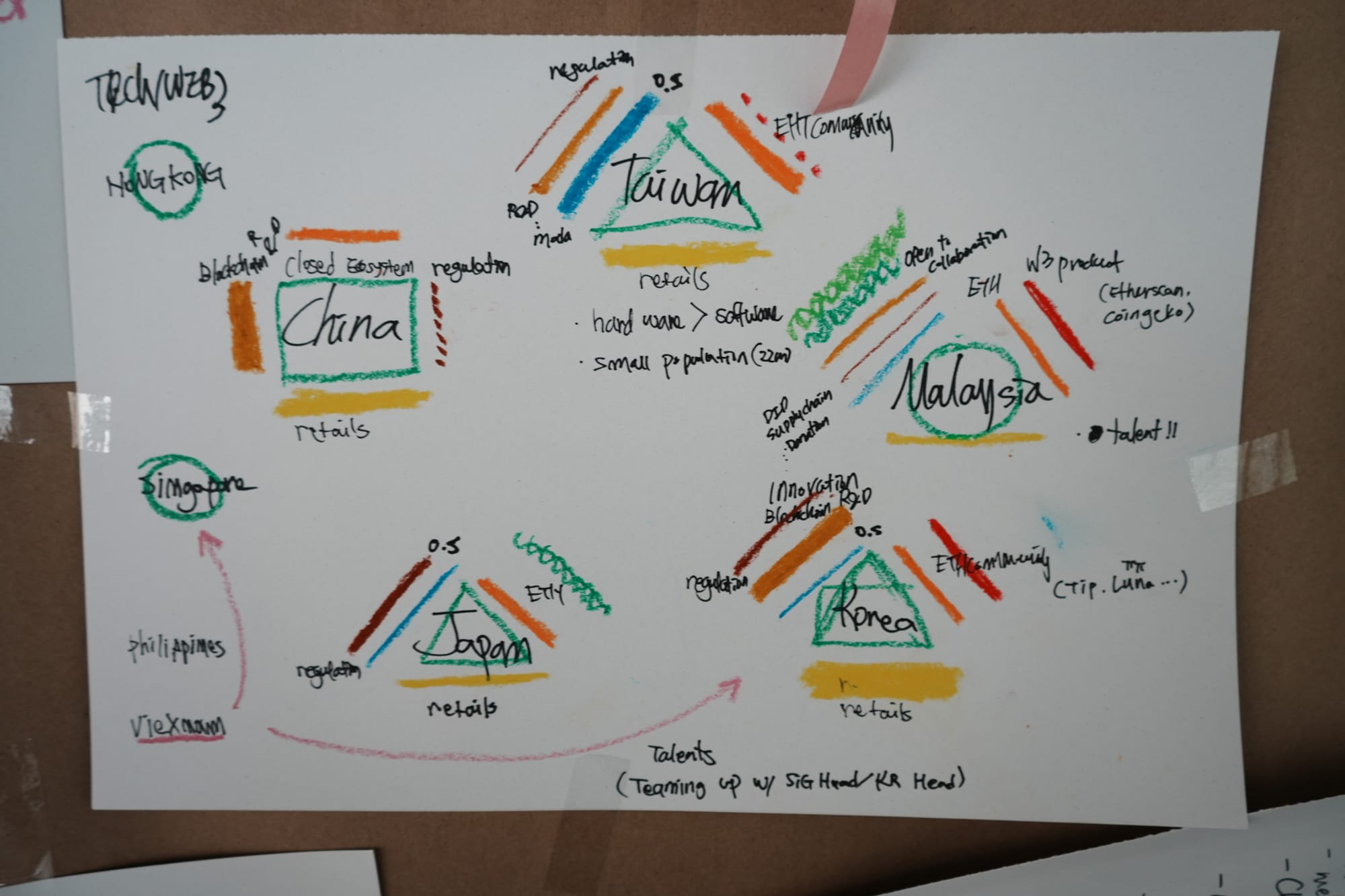
photo by Songyi and illustration by Vivian
- In the next 6 months 🧋Taiwan, 🥥Thailand, 🍜Vietnam and 🌳Malaysia will play host 'pop-up' cities, one of the latest social trends in Web3.
- 🧋Taiwan is one of the global leaders in the 'public goods' space, where civic-tech communities, such as Da0, are working in collaboration with the Ministry of Digital Affairs.
- In 🍄Myanmar, where citizens have been fighting an armed resitance against the military regime for over two years, the use of stable coins (crypto currencies pegged to the value of the US$) is helping ordinary citizens hedge against inflation and bypass domestic bank controls, among other more radical attempts to create an alternate financial system.
- In 🏔Japan, local governments to help deal with aging demographics and population declines by offering novel tax schemes and residencies to younger poeple using NFTs and DAOs to some success.
The gathering took place at the base of 4 Seas, a self-described "startup society" created by a collection of Mainland Chinese Crypto communities. Due to the 🇨🇳PRC's increasingly intolerant stance to Bitcoin and crypto, they had to move with their feet. Historically, Thailand served as one of the key nodal points for Guomindang party leaders to garner resources and support from the Chinese diaspora community enroute to establishing the Republic of China in 1911 after the fall of the Qing Dynasty. 100 years later, Thailand finds itself absorbing a fresh wave of "nomads" from crypto and others seeking an alternative to the Neijuan (grind) of life in Chinese cities.
Perhaps on this fertile land new visions of an interconnected Asia will take seed.
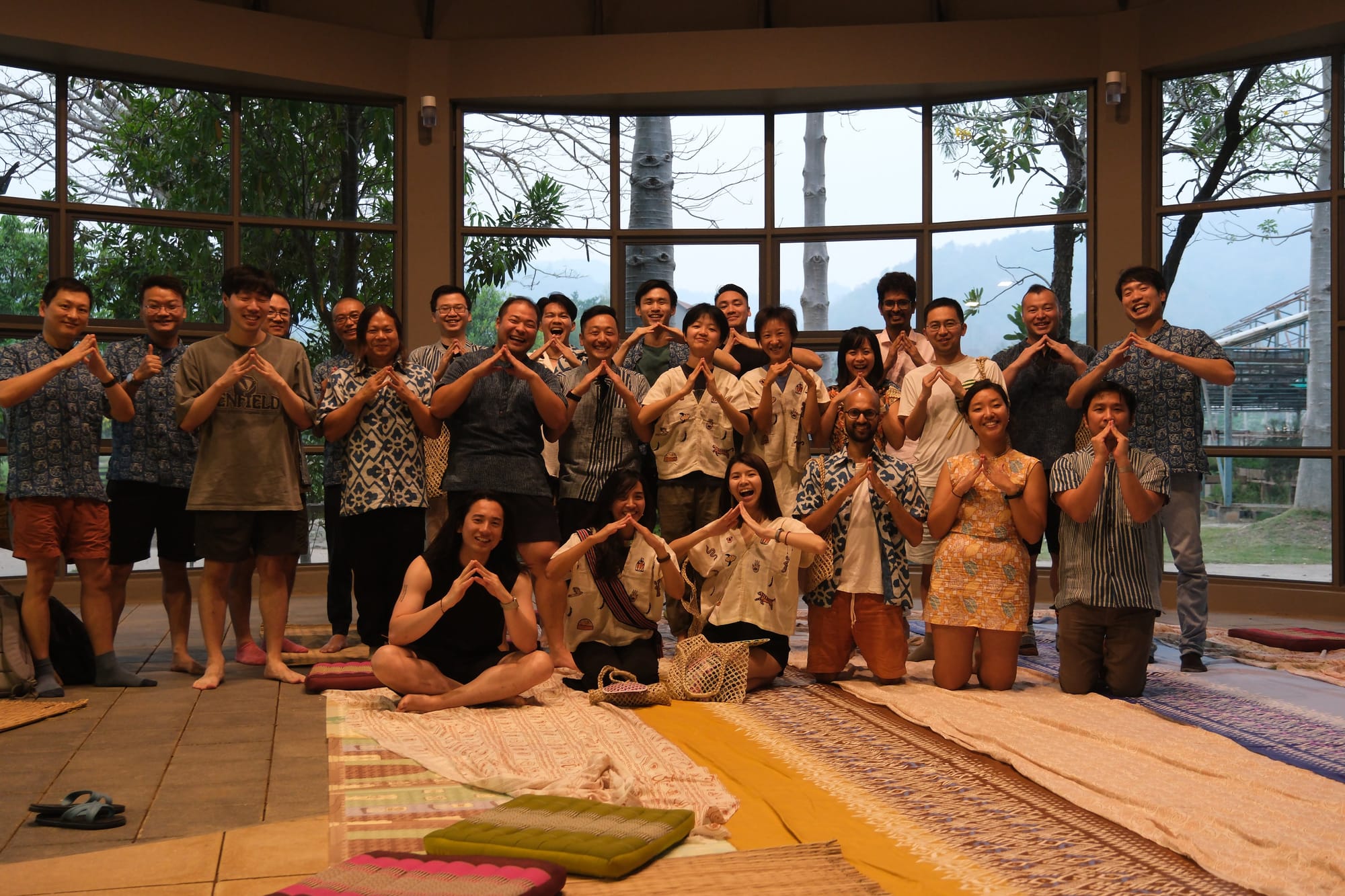
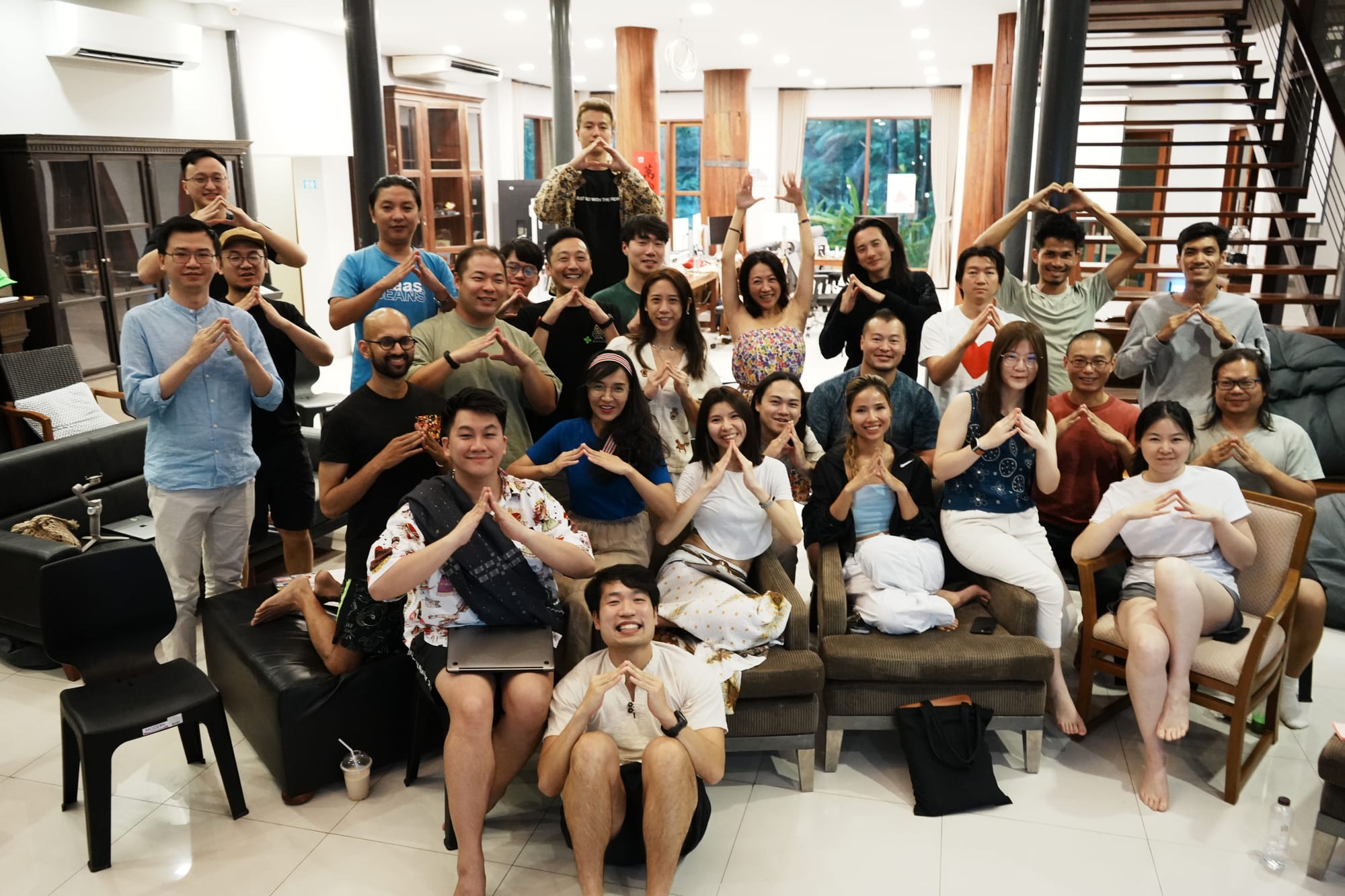
End note
Crypto is still largely at the margins of society as it searches for successful mainstream use cases. Trading and speculating makes up the majority user base and community in most countries, largely as a means to accumulate money as fast as possible. Building open-source based 'public goods' is growing but still small. For many people in Asia crypto is associated with scams. Crypto is still part of current paradigm when it comes to economic thinking around human behaviour and incentives. This may not substantially change without the onset of a deeper institutional crises.
The global mainstream crypto community may never see Asia beyond the lens of a market but their arrival in the region is sparking our own journeys of discovery and connection. That will be enough.
